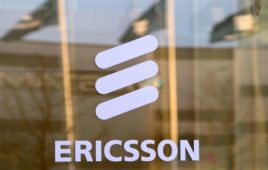The FCC’s second auction of high-band 5G spectrum has grossed more than $1.8 billion in proceeds as of Thursday afternoon, as the bidding schedule increased to five rounds per day.
After 46 rounds of bidding during the clock phase of the 24 GHz spectrum auction, totals hit $1,810,112,567.
There are now five 30-minute bidding rounds each day, compared to the three hour-long rounds in previous days. During the current clock phase, Partial Economic Area (PEA) blocks are up for bid, after which the assignment phase will begin and winners can bid on specific frequency licenses.
The millimeter wave auction (also known as Auction 102) kicked off March 14 with 38 qualified bidders participating, including the nation’s top four carriers, as well as U.S. Cellular, Dish Network, Starry, and Windstream, among others.
Much interest is focused on major U.S. markets including New York, Los Angeles, Chicago, and San Francisco. Overall there are 2,909 license available in the unencumbered 24 GHz band.
Winners from the FCC’s 28 GHz auction, which ended earlier this year raising $702.52 million, will be publicly disclosed once the current auction wraps.
The FCC is working to free up additional high-band spectrum this year, with plans for a third mmWave auction for the upper 37 GHz, 39 GHz, and 47 GHz bands.
Separately this week, CTIA outlined a National Spectrum Strategy that recommends creating a five-year spectrum auction schedule to open up access to additional high-, mid-, and low-band spectrum.
The report included research from the Analysis Group that found making more spectrum available to the wireless industry over the next five years would add $391 billion to the U.S. economy and create 1.8 million new jobs.
It also included findings from research firm Analysys Mason that the U.S. is now tied for first with China in terms of global 5G readiness, due in part to private investment and favorable infrastructure policy reform.

